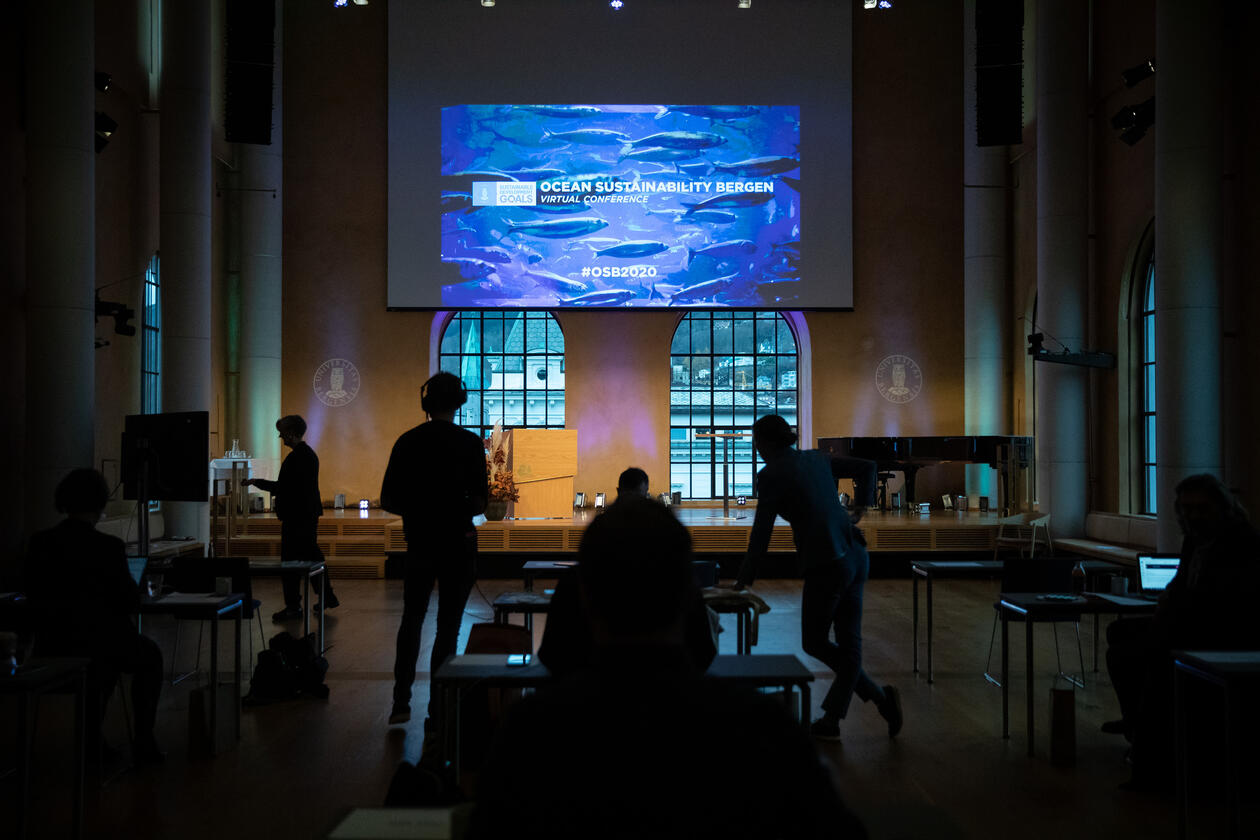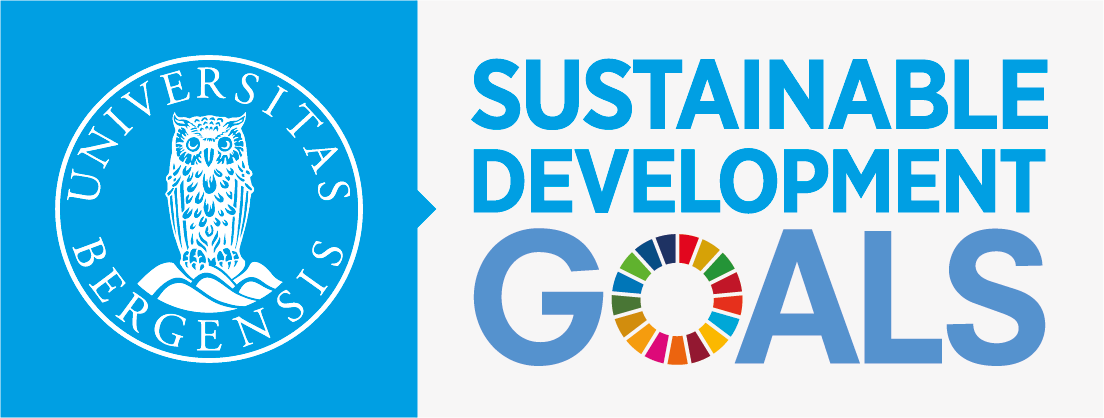Climate change, the ocean and its people: Unprecedented challenges, workable solutions and a sustainable future
The third Ocean Sustainability Bergen Conference took place Thursday 21 October 1:00pm-3:45pm (CET).

Main content
The annual Ocean Sustainability Bergen (OSB) Conference offers a platform for students, researchers, and practitioners from around the world to come together and discuss the biggest threats facing our ocean, and explore innovative and practical solutions to combat these threats. The conference also serves to promote knowledge and activities related to the Sustainable Development Goals (SDGs), in particular the work of the University of Bergen and other universities in Norway and around the world. This year, the OSB Conference aims to highlight one of the largest, and most complex, threats facing our ocean today: climate change.
The global sustainable future depends on the state of the ocean. The health of the ocean and human health are interconnected. Anthropogenic activities and their consequences impact, sometimes irreversibly, the ocean which in turn affects the health and well-being of the humans who depend on it. This delicate cycle is challenged ever more with the growing threat of climate change, and we are now in a race against ourselves to adapt to an unprecedented future.
PROGRAMME
13:00 Opening remarks
Professor Lise Øvreås, Scientific Director Ocean Sustainability Bergen, University of Bergen
Rector Margareth Hagen, University of Bergen
13:20 The Ocean Sustainability Bergen Lecture
Former Prime Minister of Norway and co-chair of the High-level Panel for a Sustainable Ocean Economy Erna Solberg
13:30 Panel discussion 1
The problem of climate change and biodiversity loss is vast and multifaceted. There are many intricacies for its causes and impacts, which reflect the intricacies of the human world that is responsible for this problem. There is much about the ocean, its biological diversity and physical processes that are unknown, and equally challenging is understanding the people that rely on these biological and physical processes for their lives and livelihoods. In this discussion we will bring the ocean and its people to the forefront of the climate change problem, by focusing on three sub-themes:
- How climate change will affect marine biodiversity and ocean economy
- Climate change and the socioeconomic impacts of a rising ocean
- How climate change has a social impact on people living by the sea
Each panellist will hold a 3 minute introduction. A 35 minute panel discussion will follow.
1. Jens Frølich Holte, Norway's Special Envoy to the high-level panel for a sustainable ocean economy
2. Isabella Lövin, Former Deputy Prime Minister and Environment Minister of Sweden, Co-Chair of Friends of Ocean Action, Honorary Doctor at the Swedish University of Agricultural Sciences and Doctor of Science at the World Maritime University
3. Natalia Golis, County Deputy Mayor
4. Mari Skuggedal Myksvoll, Researcher, Oceanography and climate, Institute of Marine Research
Moderator: Professor Tor Eldevik, Head of the Geophysical Institute, University of Bergen
14:20 Break
Video presentation of a Design Thinking workshop with 25 master students from the University of Bergen and NHH Norwegian School of Economics
14:40 Panel discussion 2
The future of our ocean depends on everyone’s effort. How can we focus on solutions rather than conflicts/problems?
Each panellist will hold a 3 minute presentation. A 35 minute panel discussion will follow.
5. Nina Jensen, CEO REV Ocean
6. Stig Ingemar Traavik, Director, Department for Climate, Energy and Environment, The Norwegian Agency for Development Cooperation/NORAD
7. Gabriella Bianchi, Dr., EAF-Nansen Research Coordinator, Institute of Marine Research
8. Dr. David Smith, The Institute for Sustainable Development, University of the West Indies
Moderator: Professor Tor Eldevik, Head of the Geophysical Institute, University of Bergen
15:30 Closing remarks
Professor Lise Øvreås, Scientific Director Ocean Sustainability Bergen, University of Bergen and Professor Edvard Hviding, Scientific Director SDG Bergen Science Advice, University of Bergen

